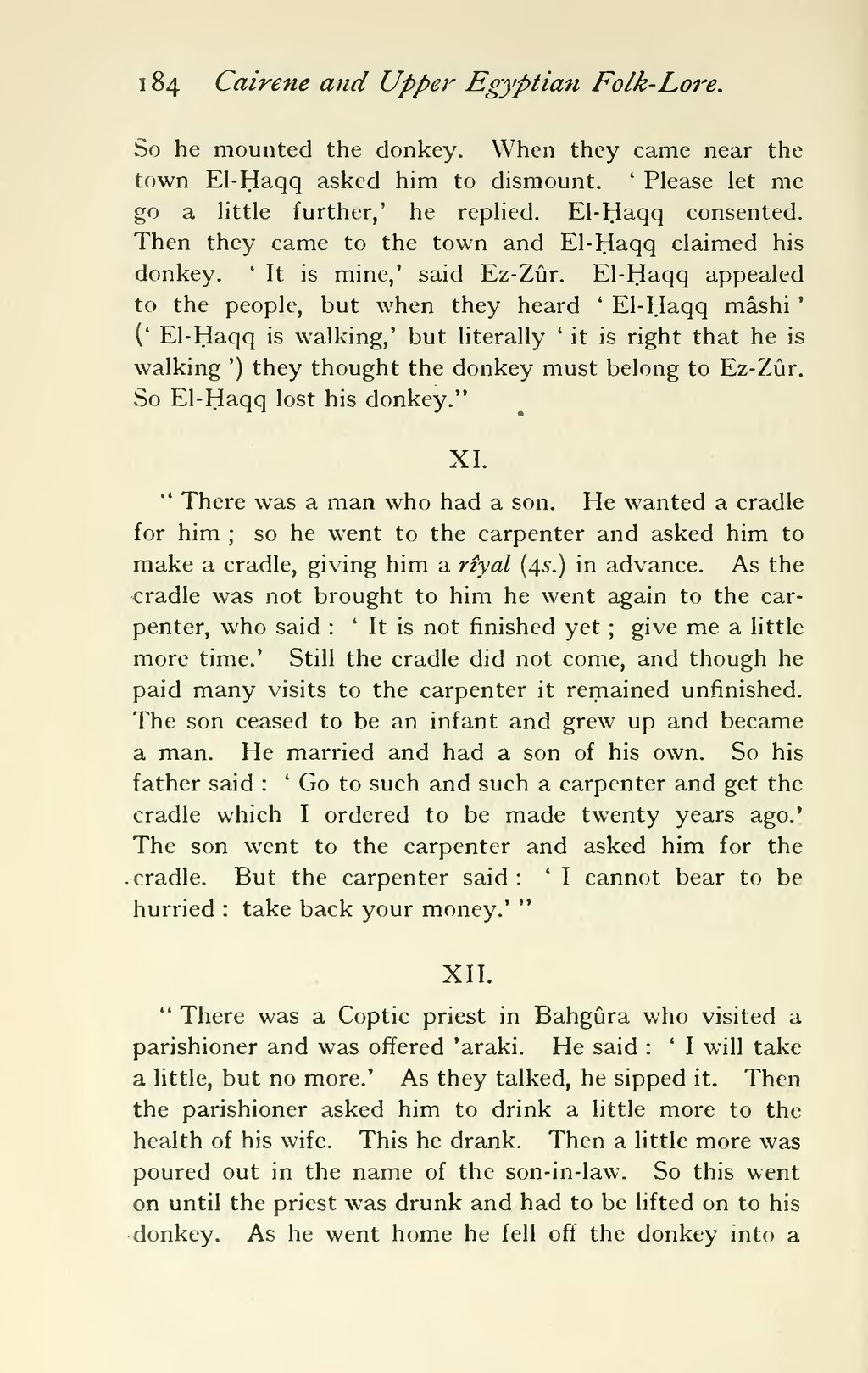So he mounted the donkey. When they came near the town El-Ḥaqq asked him to dismount. ‘Please let me go a little further,’ he replied. El-Ḥaqq consented. Then they came to the town and El-Ḥaqq claimed his donkey. ‘It is mine,’ said Ez-Zûr. El-Ḥaqq appealed to the people, but when they heard ‘El-Ḥaqq mâshi’ (‘El-Ḥaqq is walking,’ but literally ‘it is right that he is walking’) they thought the donkey must belong to Ez-Zûr. So El-Ḥaqq lost his donkey.”
XI.
“There was a man who had a son. He wanted a cradle for him; so he went to the carpenter and asked him to make a cradle, giving him a rîyal (4s.) in advance. As the cradle was not brought to him he went again to the carpenter, who said: ‘It is not finished yet; give me a little more time.’ Still the cradle did not come, and though he paid many visits to the carpenter it remained unfinished. The son ceased to be an infant and grew up and became a man. He married and had a son of his own. So his father said: ‘Go to such and such a carpenter and get the cradle which I ordered to be made twenty years ago.’ The son went to the carpenter and asked him for the cradle. But the carpenter said: ‘I cannot bear to be hurried: take back your money.’”
XII.
“There was a Coptic priest in Bahgûra who visited a parishioner and was offered ’araki. He said: ‘I will take a little, but no more.’ As they talked, he sipped it. Then the parishioner asked him to drink a little more to the health of his wife. This he drank. Then a little more was poured out in the name of the son-in-law. So this went on until the priest was drunk and had to be lifted on to his donkey. As he went home he fell off the donkey into a
